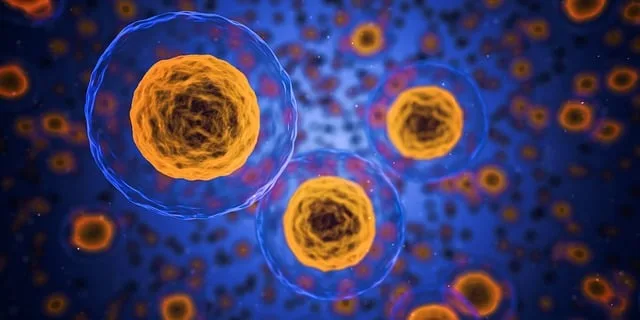The field of epigenetics has started to reshape our understanding of the dynamics between genetic makeup, environmental influences, and our health. Longevity Live Paid Content.
Epigenetics take the role of external factors and choices made in everyday life as determinants of specific health outcomes. In this article, we are going to explore this fascinating topic and its subsequent applications to everyday life. Epigenetics: From the 1940s to today.
Epigenetics is a 21st Century concept
The concept of “epigenetics“, coined by embryologist Conrad Waddington in the 1940s, referred to the intricate processes bridging the gap between genotype and phenotype.
Despite being rooted in the 17th-century notion of “epigenesis“, the field of epigenetics didn’t garner substantial attention until the 21st century, when studies focused on chromatin modifications – chemical changes to DNA or histone proteins – without altering the base sequence.
Today, epigenetic modifications can be segmented into the following three groups:
- DNA methylation: a chemical process during which a methyl group is added (or removed) to the DNA molecule. This alteration often acts to suppress gene transcription, effectively turning genes off without changing the underlying DNA sequence.
- Histone Modification: These modifications, which include methylation, acetylation, phosphorylation, and ubiquitination, alter the physical and chemical properties of the histones.
- Non-coding RNA sequence: Long noncoding RNAs are molecules that, although they don’t produce proteins, can still influence gene expression. They recruit certain proteins that modify histones. These are the proteins that DNA wraps around, altering gene activity. Similarly, small RNA molecules can silence genes by forming complexes that alter histones and DNA.
These epigenetic modifications have the potential to explain some of the human uniqueness that cannot be attributed to changes in DNA sequence.
The Potential of Epigenetics
Epigenetics holds immense potential to revolutionize medical treatments and personalized medicine. Such as the treatment of serious illnesses like cancer, autoimmune diseases, mental disorders, and neurodegenerative diseases.
Recent research suggests that epigenetics could be instrumental in the onset of certain types of cancer (Source). For instance, if an epigenetic modification inhibits a tumor suppressor gene, e.g., a gene that usually restricts cell proliferation may result in unchecked cellular growth. Similarly, if epigenetic changes “deactivate” genes responsible for repairing damaged DNA, this could lead to a heightened accumulation of damaged DNA, thereby amplifying the risk of cancer.
Understanding molecular dynamics may help to understand why specific cancers occur, as factors causing genetic damage may differ from those triggering epigenetic damage. As a result pharmaceutical treatments or therapies might be more effective in treating cancers caused by genetic damage. While others may be more successful against cancers stemming from epigenetic damage.
The promising potential is undeniable and presents exciting opportunities for the future of medical science and research.
Applying Epigenetics In Our Life: Recommendations
Emerging research shows that our lifestyle, including factors such as diet, stress, and physical activity, can substantially influence the aforementioned epigenetic modifications. Making healthier, functional choices in lifestyle and environment may positively influence epigenetics.
The following are practical, simple, health-focused measures that anyone can incorporate into their lifestyle:
- A healthy and nutrient-rich diet: Our everyday diet is a crucial way to interact kindly with our genes. opt for whole foods boasting antioxidants, protein, complex carbs, fiber, and healthy fats.
- Stress: Mindful activities such as yoga, meditation, or simple routine periods of relaxation can help regulate stress levels.
- Sleep: Aim for 7–8 hours of quality sleep daily to avoid adverse impacts.
- Toxins (e.g. Tobacco): It is well established that smoking does increase the risk of respiratory issues, cardiovascular disease, and different forms of cancer. In addition, tobacco leads to harmful epigenetic transformations.
While the first few steps might seem arduous, each cumulative effort can meaningfully impact your health.
Ethical Issues with Epigenetics
As with many scientific advancements, the field of epigenetics also presents potential ethical challenges, including:
- Intergenerational Concerns: Epigenetics hints at intergenerational effects, suggesting exposure may affect future generations. This poses new challenges to health regulations and redefines intergenerational equity. Each generation may have an obligation to prevent environmental damage to the genome. The impact of such transgenerational epigenetic changes on environmental policies remains unclear.
- Privacy Concerns: Further, epigenetics research can reveal significant data about an individual’s propensity to develop health issues and the likelihood of passing them on to offspring, thereby raising several privacy concerns. The surge in the usage of electronic health records further adds to this risk.
Addressing these concerns is important, presenting a great opportunity for the integration of public policy measures aimed at creating healthier living environments for everyone.
Final Words
Epigenetics provides a new angle in the ongoing discourse of nature vs. nurture. It suggests that while we cannot manipulate our inherited genetic code, we have some discernible influence over our genetic behavior. As we continue to explore and understand this groundbreaking field, it promises to continually add to our knowledge on how to positively influence our health.
Who is the author

Jenna Kensington
Jenna Kensington is a preeminent expert in the realm of nutrition and biomarker research. Born and raised in Cambridge, England, she cultivated a fascination for the sciences early on, particularly the powerful intersection between nutrition and human biology.
She earned her degree in 2013 where she was immersed in exploring the intricate relationship between nutrients, metabolic health, and disease mechanisms. Her high-impact research specifically focused on the influence of diet on the human body’s biomarkers and the potential ramifications of these interactions on the onset and progression of various disease states.



![women [longevity live]](https://longevitylive.com/wp-content/uploads/2020/01/photo-of-women-walking-down-the-street-1116984-100x100.jpg)










